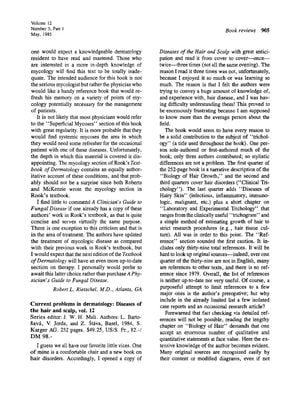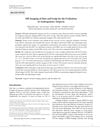Current Problems in Dermatology: Diseases of the Hair and Scalp, Vol. 12
May 1985
in “
Journal of The American Academy of Dermatology
”

TLDR The book "Diseases of the Hair and Scalp" has outdated information and confusing content, but may still offer some insights.
The document is a review of the book "Diseases of the Hair and Scalp," which the reviewer, Robert G. Crounse, M.D., read multiple times due to difficulty in understanding the content despite his expertise in the field. The book covers the biology of hair growth, clinical trichology, diseases of hairy skin, and laboratory and experimental trichology. However, the reviewer criticizes the book for its limited and outdated references, lack of detailed biochemistry, and repetitive content. The "Clinical Trichology" section, which should be the core of the book, is found to be confusing and lacking in adequate data and references, making potentially valuable information unusable. Despite these issues, the reviewer acknowledges that the book contains a wealth of material up to 1979 and could provide some learning opportunities. The reviewer suggests that dermatologists should consult the book in a library before deciding to purchase it, as it may still offer some insights despite its shortcomings.




